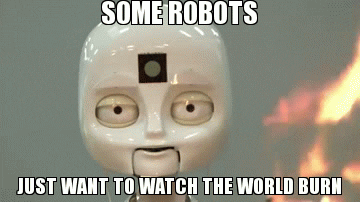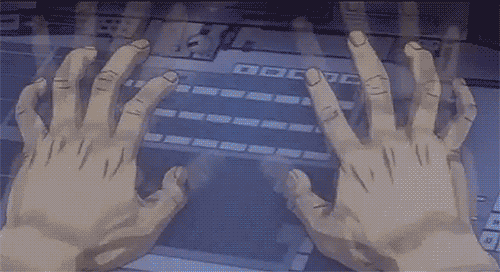- Creative Space | #MadeByMELO
- Posts
- AI and Creativity: A Renaissance or a Revolution?
AI and Creativity: A Renaissance or a Revolution?
The role of AI in the creator economy and the future of human-AI collaboration

Artificial Intelligence (AI) has rapidly transformed industries and is heralded as the next frontier in technological innovation. However, its impact on the creator economy and more specifically on creativity is still a topic of heated debate. As with any technological advancement, the AI transformation brings with it a host of opportunities, challenges, and ethical considerations. From content and products to gaming and art, AI's influence is profoundly reshaping how we create, interact with, and consume ideas, information, and creative works. Let’s explore the multifaceted role of AI in creative industries, its benefits, ethical considerations, and the future of human-AI collaboration.
❝ Is this a renaissance for creativity, or a revolution that threatens to disrupt traditional methods? |
AI in Content Creation
AI tools are revolutionizing content creation by enabling faster, more efficient, and personalized production across various media platforms. For instance, GPT-3, an advanced language model developed by OpenAI, can generate human-like text for a wide range of purposes—from drafting articles to crafting social media posts. This not only saves time but also allows for the creation of more diverse and engaging content. The New York Times uses AI to sort through vast archives to identify overlooked stories and topics for their "Editorial Intelligence" system. This significantly reduces the time human editors spend on sifting through archives, allowing them to focus on crafting engaging stories.
beehiiv | Many platforms and tools have integrated AI into existing workflows. including beehiiv2 the ultimate newsletter growth platform for creators introduced beehiiv AI. |
In an era where misinformation can spread like wildfire, AI tools like WITNESS from the AI Foundation, which identifies deepfake videos; play a crucial role in maintaining the integrity and reliability of content. |
Curious about the Creator Economy? Check out the Karat weekly newsletter Stories from the creator economy.
AI in Gaming
The gaming industry is one of the most exciting frontiers for AI application. AI enhances player experiences through dynamic content generation, intelligent automation, and adaptive difficulty levels.
AI Dungeon by Latitude, for example, generates text-based adventures that allow players to create their own narrative paths, offering an unprecedented level of interactivity and personalization. |
No Man's Sky uses procedural generation algorithms to create a vast galaxy of unique planets, flora, and fauna. This approach ensures that players have distinct experiences on every new planet, showcasing the potential of AI to create expansive and varied game environments. Similarly, the Left 4 Dead series uses adaptive AI to adjust game difficulty based on player performance, ensuring a balanced and enjoyable experience for all players. |
Balancing AI and Human Creativity
While AI enhances gaming experiences, it is crucial to balance AI's capabilities with human creativity. Developers can use AI to automate repetitive tasks, allowing them to focus on innovative game design and storytelling.
AI in Art
In the art world, AI is not replacing artists but rather empowering them with new tools and methods to conceptualize, design, and produce artwork. Google's DeepDream, for instance, creates surreal images by enhancing patterns in existing photos, offering artists new forms of expression. The Portrait Master app by PortraitAI uses AI to transform photos into realistic portraits, reducing the time and skill required to create high-quality portraits, making art accessible to a wider audience. |
Legal & Ethical Considerations
While the benefits of AI in creativity are evident, it’s not without ethical and societal implications The use of AI in copyright enforcement by companies like YouTube and Facebook, where AI is utilized to identify and remove copyright-infringing content, has raised questions about the accuracy and fairness of such measures. A balanced approach, protecting both creators and consumers, is critical in mitigating the risks and concerns of AI.
Job Displacement: Automation of certain tasks could lead to job losses in creative fields. However, AI can also create new opportunities and roles that didn't exist before. By automating mundane tasks, AI allows human creators to focus on higher-level, more rewarding aspects of their work.
Content Homogenization: There is a concern that over-reliance on AI could stifle creativity and lead to homogenized content. However, when used as a collaborative tool, AI can enhance human creativity by offering new perspectives and possibilities.
Integrity: AI tools must be used responsibly to avoid the spread of misinformation and protect societal values.
Copyright Infringement: AI-generated content being indistinguishable from human-created content can lead to legal and ethical issues. AI-generated content raises questions about copyright and ownership. Establishing clear legal frameworks and guidelines will help address these issues and protect the rights of both AI developers and human creators.
| Encouraging transparency and ethical standards in AI development can mitigate concerns about misinformation, copyright infringement, and negative societal impacts. Companies and creators must be accountable for AI tools and the content they create. |
We scour 100+ sources daily
Read by CEOs, scientists, business owners and more
3.5 million subscribers
AI … A Renaissance or a Revolution?
The future of AI in creativity lies in collaboration between human creators and intelligent systems, leading to unprecedented levels of innovation. While there are valid concerns and ethical considerations, the potential benefits of AI in enhancing creativity across content creation, gaming, and art are immense. By establishing clear guidelines, promoting transparency, and fostering a culture of responsibility, we can harness the power of AI to create a new renaissance in the creative industries.
1 Author Note: Opinions expressed in this article are solely MELOGRAPHICS’ based on personal experience and research using public information and resources; not sponsored nor endorsed by any named company/organization/person unless stated. All content, games titles, trademarks, artwork and associated imagery are trademarks and/or copyright material of their respective owners. MELOGRAPHICS is not responsible for the content linked externally on third-party sites. See original sources and references for official information and details.
2 Affiliate Disclaimer: Links and content on this website may be affiliate in nature and yield a commission which is reinvested into the content, community, and member perks by MELOGRAPHICS. View terms & details.









Reply